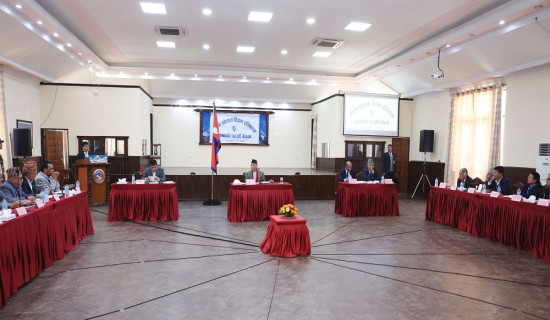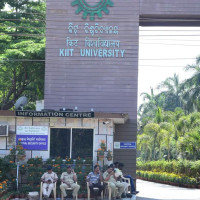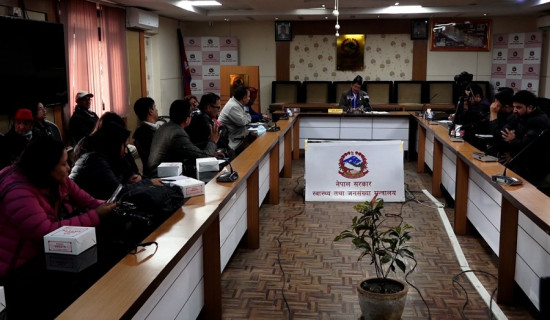- Friday, 21 February 2025
Agrawal's fruitful commercial guava farming in Morang
By Hari Prasad Koirala,Urlabari, Feb. 20: After pioneering Nepal’s first commercial ber fruit farming, Binod Agrawal has now ventured into guava cultivation in Harkapur, Kanepokhari-3, Morang. After realizing that ber and guava are not commercially produced in Nepal but are heavily imported from India and other countries, Agrawal decided to expand his farming initiatives.
He has planted 300 guava saplings on his 12-kattha plot. The saplings, imported from Kolkata, India, were planted 18 months ago and have now started bearing fruit.
Agrawal invested Rs. 300,000 in the plantation and has also planted 15 different varieties of fruit trees. The guavas, weighing up to 500 grams each, are sold at an average price of Rs. 200 per kg in the Nepali market. While local guava varieties face low demand, Taiwanese and Safeda guavas remain popular.
Currently, his farm produces guavas weighing up to 300 grams each. Although they may not look as appealing as imported ones, they are sweet, said Raghu Tudu, a caretaker of Agrawal’s farmland.
He emphasised that farming without proper study has not yielded satisfactory results, but with effective soil management, farmers can achieve profitability.
Last year, Agrawal sold Rs. 80,000 worth of ber, and this year, he expects sales to reach Rs. 160,000. However, managing the farm remotely while employing two workers has proven financially challenging. He believes proximity to the farmland is crucial for profitability.
Guava farming also presents difficulties, as all fruits ripen simultaneously, and proper storage facilities are lacking.
Selling them in small markets is challenging, but direct sales through personal transport could boost consumption, he noted.
Despite financial constraints, Agrawal remains optimistic about the potential of ber and guava farming. “I took this up as an experiment. Farming should only be pursued after understanding the market, storage, and cultivation methods,” he said. He believes even a 2 per cent reduction in fruit imports would be a significant achievement and aims to expand his efforts with better planning and research.
To reduce losses, he has also planted mustard between guava trees as an intercrop, ensuring multiple sources of income.







-(1)-square-thumb.jpg)









